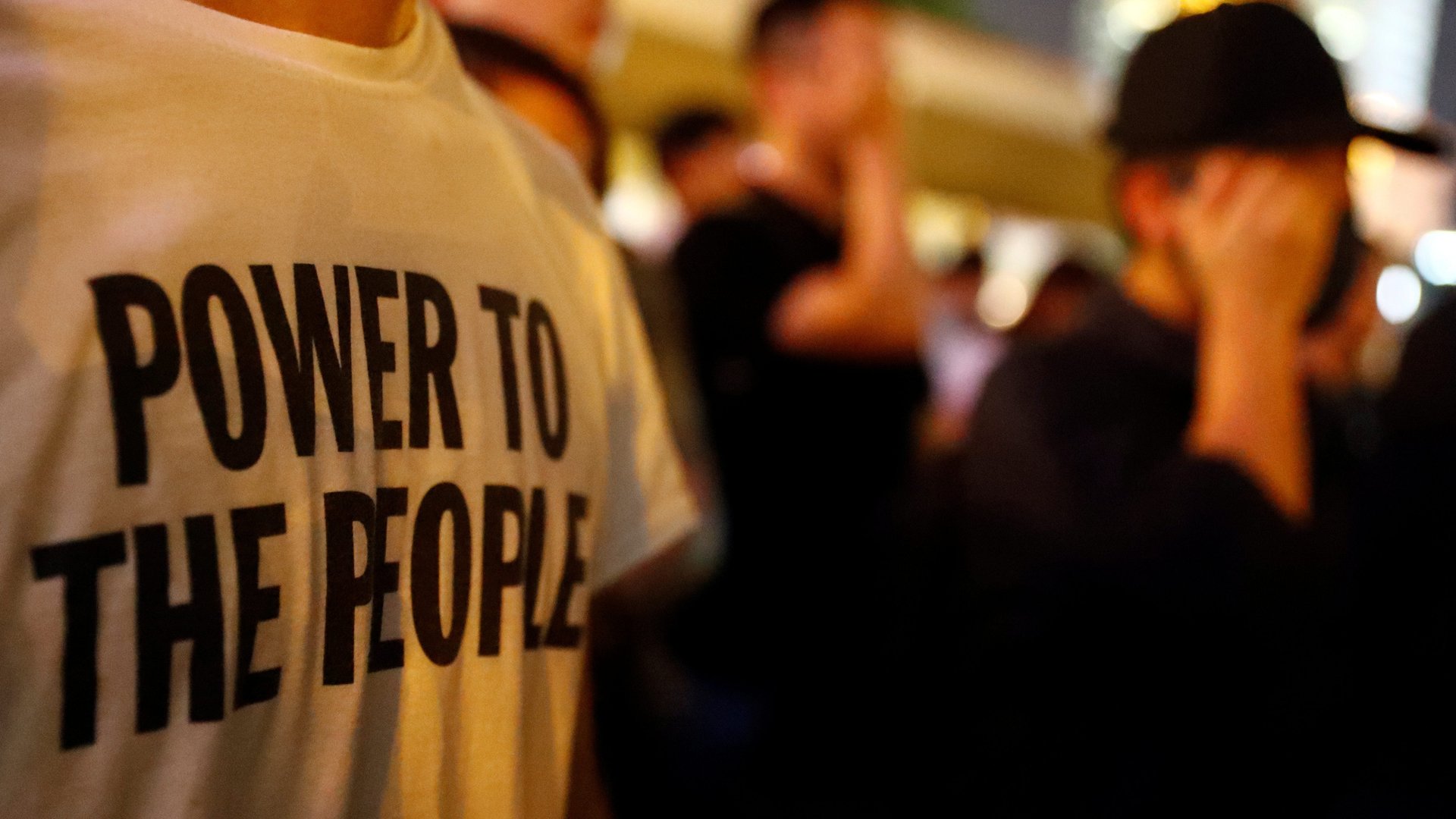China’s Hong Kong narrative is confusing its own people
For months, Chinese people have been delivered a stream of news about Hong Kong’s protesters being reckless “thugs” who have been led astray by the CIA in order to throw the city into chaos using opposition to an extradition bill as a mere pretext.


For months, Chinese people have been delivered a stream of news about Hong Kong’s protesters being reckless “thugs” who have been led astray by the CIA in order to throw the city into chaos using opposition to an extradition bill as a mere pretext.
Which is why some people in China voiced confusion online after Hong Kong’s chief executive Carrie Lam announced yesterday (Sept. 4) that she will completely withdraw the bill. Lam’s move came after months of mass protests calling for the withdrawal of a piece of legislation that many in Hong Kong saw as a grave threat to the city’s autonomy enshrined as part of its 1997 return to Chinese rule, as it would have allowed people to be sent to the mainland to face trial for the first time.
While protesters responded to the move by vowing to continue to press for their other demands, including an inquiry into police brutality and full voting rights in city elections, it’s a clear sign of the effectiveness of their protests—which may be why Beijing appeared to be trying to dampen discussion of the move.
On Twitter-like social media platform Weibo, people pointed out that China’s state media had disabled comments under posts about the withdrawal, and the topic #Carrie Lam withdraws the extradition bill# was not among Weibo’s trending searches in spite of it being such significant news. Posts under the hashtag had gathered nearly 600,000 views as of writing.
“Why is it taking forever to get #Carrie Lam withdraws the extradition bill” trending on Weibo?” a user wrote last night.
The topic’s failure to trend, many noted, is in stark contrast to the overwhelming response last month to the patriotic hashtag #The five-star red flag has 1.4 billion protectors#, which has garnered some 6.4 billion views as of writing. Hong Kong celebrities were among those who heeded a call for every citizen to be the protector of China’s flag after protesters removed and dumped China’s national flag into Hong Kong’s Victoria Harbour twice.
“[Weibo] puts what it wants you to see on trending topics, and closes your eyes to what it doesn’t want you to see. What if you learn from the [Hong Kong protesters] one day,” a skeptical user noted, while another said, “What Hong Kong fights for today is to avoid being shielded by such a ‘hand’ tomorrow.”
Perhaps most worryingly for Beijing, some are applauding the people of Hong Kong.
“Inside the [Great Fire] wall, Weibo’s trending topic still is about Hong Kong students who got a Chinese idiom wrong more than three times, it still seizes on these unimportant deeds… to push people into sarcasm and cynicism [towards Hong Kong]. While outside the wall people still insist on five demands and won’t give up on the other four only because one has been fulfilled… I don’t support violence, but I believe that the people with good initial intentions deserve to get what they long for. They are clear-minded and progressive,” wrote user Niu Tou Jiao Chu Mo.
Another described Lam’s climbdown as a one-of-a-kind achievement since Xi Jinping came to power, when he became general secretary of the Communist Party at a party summit in 2012. Xi’s time in power has been associated with a crackdown on activists and freedom of expression in the country. “The withdrawal of the bill marks the first victory of democracy since the 18th Party Congress. Well done, Hong Kongers,” the user wrote.
These may not be mainstream ideas judging from their frequency on Weibo—but that result could also be due to the heavy censorship on the social platform, which like other social media, constantly censors themes Beijing deems out-of-step with its official stance on political issues. As Kiki Zhao, a writer noted on China File in late August:
Determining public opinion about politics is always difficult in an authoritarian state. It’s even more difficult to gauge the scale of dissent when it is so actively silenced. It’s true the divergent voices on Hong Kong see far fewer likes or reposts than the hateful or hyper-nationalist ones. But who is to say the latter type of posts or comments don’t emanate from bots or state-coordinated efforts? Why should they overshadow the former?